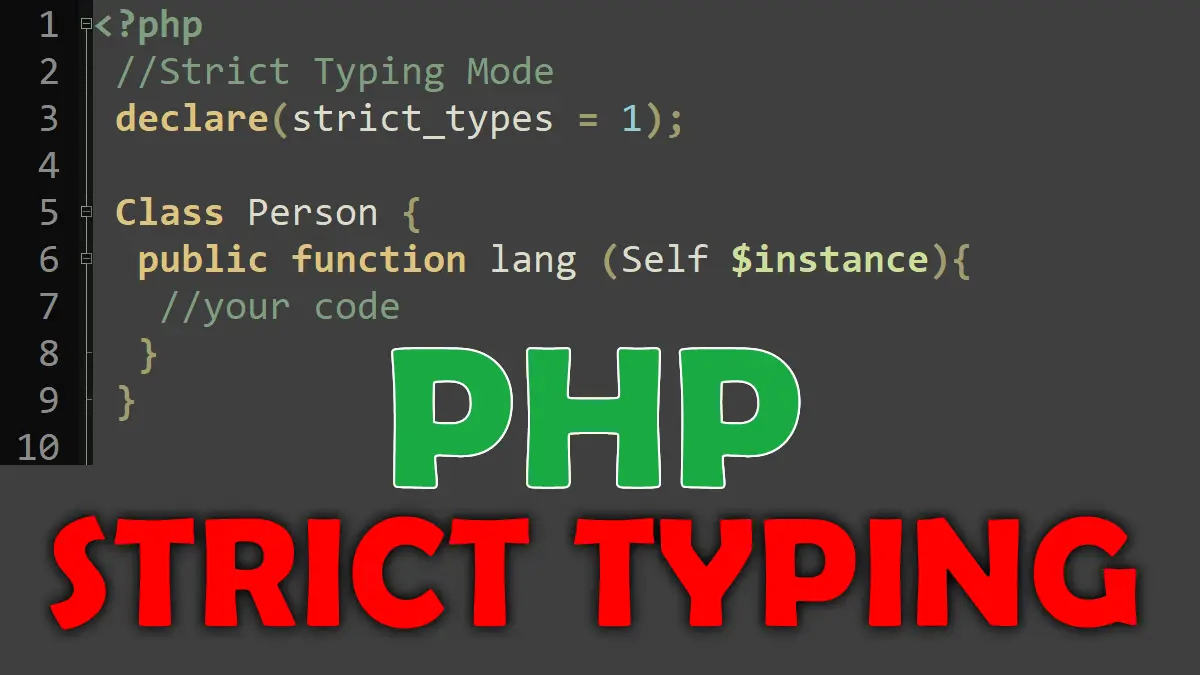The default behavior in PHP is to attempt to convert scalar values of incorrect type into the expected type. For example, a function expecting a string can still be called with an integer argument, because an integer can be converted into a string as shown in the following example:
<?php
function getString(string $str) {
var_dump($str);
}
$int = 12;
getString($int);
//string(2) "12"
Without strict typing, PHP will change the integer 12 to string "12". In strict mode, only a variable of the exact type of the type declaration will be accepted, or a TypeError will be thrown:
<?php
declare(strict_types = 1);
function getString(string $str) {
var_dump($str);
}
$int = 12;
getString($int);
//Fatal error: Uncaught TypeError: Argument 1 passed to getString() must be of the type string, integer given...
The only exception to this rule is that an integer may be given to a function expecting a float. Function calls from within internal functions will not be affected by the strict_types declaration:
<?php
declare(strict_types = 1);
function getFloat(float $f) {
var_dump ($f);
}
$int = 100;
var_dump($int);
//int(100)
getFloat($int);
//float(100)
declare(strict_types=1); affects both parameters and return type declarations of scalar type, which must then be of the exact type declared in the function:
<?php
declare(strict_types = 1);
function getFloat(float $f) : int
{
return (int) $f;
}
$int = getFloat(100);
Note: You must configure the declare(strict_types = 1); statement in the first line of your code, or else it will generate a compile error. Also, it does not affect the included files, you need to declare the declare(strict_types = 1); statement on the top of each file.
Data types in PHP:
